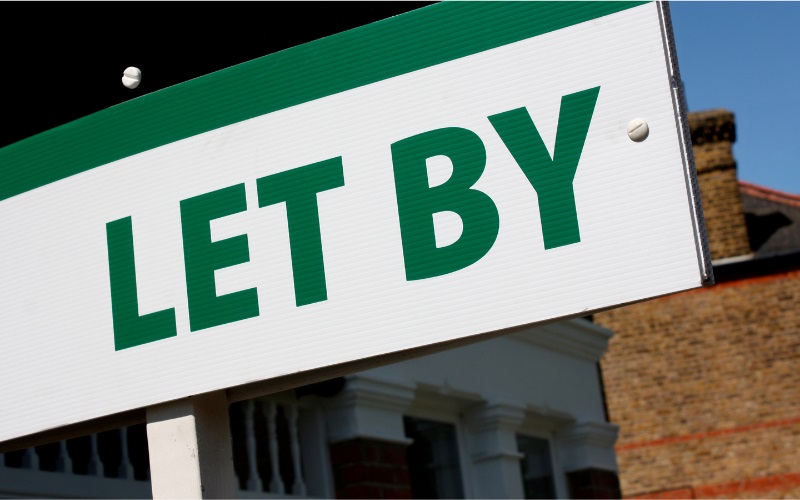Blog
- Details
- Hits: 297
4 Steps to Buying a Rental Property.

Buying and owning a rental property should be treated as a business. Even if you are not planning on having a huge portfolio of property that you rent out, it’s imperative that you cross the t’s and dot the i’s.
It may seem complicated at first, but it need not be if you plan out what you need to do, when and how. You should also seek the advice and support of professionals, whether that’s a mortgage broker, an estate or lettings agent, or an accountant.
We have four essential top tips for you to think about when it comes to buying a rental property.
As ever though, before we go through them, just a reminder that we are here for you should you need to find the right rental property to invest in. Give us a call or email us at This email address is being protected from spambots. You need JavaScript enabled to view it..
So, what are the four steps to buying a rental property
- Get your ducks in a row!
There are many things to think about when buying a property to rent out, but the most obvious is actually having the money to buy one in the first place! This could mean that you already have the means to buy a property, or you’re seeking a buy to let mortgage.
Either way, being able to show an estate agent that you are in a position to purchase is essential. Speak with potential lenders and outline what it is you are hoping to achieve and how much you need to borrow. There are forms to fill in about your income and your outgoings before the lender is able to tell you whether or not they are likely to give you a mortgage offer.
Remember, an agreement in principle will help you show estate agents and vendors that you are serious about purchasing and have the means to do so..
Top Tip You will need to have information to hand about your financial affairs, so make sure you know all the details.
- Speak to the right people to get the right advice
Buying a property entails a lot of legal work. Unless you are trained in such matters, you will need a solicitor who knows the buy to let property way of doing things. If you’re buying as a limited company this is another difference too, so someone experienced in such matters should be engaged.
An accountant who understands your financial position can work out the correct taxes that need to be sorted when the time comes. Buying to let may be a sound financial investment but get the tax side of things wrong and you could be in for an unwanted and hefty bill at some point.
Top Tip Do your research and ask people for recommendations.
- Location, location…yield
So, you’ve got your ducks in a row, and you’ve spoken with your mortgage and financial advisers. Now, what about the property?
- What sort of property do you want?
- What sort of tenant do you want?
- Do you want students, an older couple, a family or professionals?
- Will you allow pets?
All these factors have to be taken into consideration because it affects where the property is and what type of property it is. Student properties may have a good annual yield, but you may not want the hassle of dealing with students, some of whom may be known for having parties!
You may also be set on a certain location, but a good lettings agent will discuss the right areas with you and advise whether or not your investment will be sound.
Top Tip Know your goals and what sort of a landlord you will be. Remember, it’s a business so it has to make business sense.
- To manage, or not to manage?
When you have a property you are renting out, there are all sorts of things you have to do. Like maintenance, for example. Sometimes, a tenant will call you to say that the boiler has stopped working or that the fridge is broken. Then, you have gas safety certificates to sort, and now electrical safety certificates too.
So, what sort of a landlord will you be? If you don’t really have time or the skills to do the work, then you should consider a managed letting service. By this, we mean an agent will find you a tenant, do the checks, and make sure the deposit is secured where it should be, and then manage the property for a fee. If you employ a lettings agent to manage your property, this could save you a lot of time and take a headache away from you.
Top Tip Be honest about how you want to run your property and make a choice that suits you.
The first steps to becoming a landlord can seem tricky but with the right support, you can do it. Need advice? Warren Powell-Richards are your local property experts. Call us or email This email address is being protected from spambots. You need JavaScript enabled to view it. to chat with a member of our friendly and experienced team.
- Details
- Hits: 308
How to Choose a Letting Agent: 7 Questions to Ask

Choosing the right letting agent is an important decision. Your property is a valuable asset and entrusting someone else to manage it for you isn’t something to be taken lightly.
Working with an expert letting agent can help save you time and even money. Plus, you can rest assured that you’re managing your property in the right way and leaving yourself less open to risk.
If you’re thinking about working with a letting agent, here are our tips on how to choose a letting agent and the best questions to ask them before you commit.
1. Are You Regulated?
One of the first things you need to check when speaking to a potential letting agent is whether they are registered as part of a government-approved letting agency redress scheme.
Working with an unregistered letting agent can result in fines for landlords, so it’s always best to check.
2. Are You Part of a Client Money Protection Scheme?
Just like the previous question, you also want to ensure the agency is part of a client money protection scheme – particularly if they will be handling tenancy deposits and dealing with rent collection.
3. What Are Your Fees?
Of course, asking about fees is a given. But some letting agent fees are hidden in the fine print and may only crop up in certain situations.
For example, some letting agents charge a commission if you want to sell your property to a tenant in the future (since they introduced you and are therefore responsible for the sale).
When inquiring about fees, make sure you ask about all charges you could be liable to pay – not just the standard stuff.
4. What Marketing Strategies Do You Use?
A good letting agent is always on the hunt for new ways to market their properties. Depending on who your target market is, modern forms of marketing (like blogging and social media) can be highly desirable.
Make sure you ask how your letting agent will market your property to see if it’s the right fit for you.
5. Do You Know the Local Area?
Naturally, having a local letting agent has its benefits. Someone that knows the area well can market your property to potential tenants much more effectively.
Quiz the person you speak to about what’s nearby and ask to see their published local area guides.
6. How Long Does it Take to Fill Vacancies?
Every landlord wants to fill voids as quickly as possible. And finding a good tenant usually takes time.
Regardless, a good letting agent will have the facts on the average time it takes them to fill vacancies, so make sure you ask for the figures.
7. What Are Your Opening Hours?
When your letting agent is available to speak to you is important. You need someone that can work around your lifestyle and be ready to answer your questions when you have time to speak.
While most letting agents in a local area have standard opening hours, some may be open or available out of hours, too.
Enquire With Warren Powell-Richards Today
At Warren Powell-Richards, we are your local letting experts. If you’re thinking about working with a letting agent to help manage your property, our friendly team are happy to answer all your questions.
Give us a call today or browse our letting agent services at wpr.co.uk.
- Details
- Hits: 300
When Is the Right Time to Sell Your Home?

Knowing when to sell your home is tricky.
Every homeowner wants to do what is best for their family and get the most profit from their property. So when is the best time to sell your home?
When You Are Ready
This might at first seem obvious!
However, many sellers get caught up in putting their homes on the market at the ‘optimum time’ rather than when their family is ready.
Although moving in the summer months is often deemed unfavourable, it might be the only realistic opportunity for young families. Trying to force a move when the timing is not ideal for your personal circumstances can be catastrophic.
Additionally, there is a considerable amount of work involved with preparing the home for sale. Before the property can be photographed and viewed, a substantial declutter and a thorough clean will be necessary. You might also be required to redecorate, adding a more neutral colour palette to the home so it appeals to the broadest possible market.
Shifting Trends
Ten years ago, advising a client on the best time to market their home would be straightforward.
Spring was always the best, with Easter routinely ranking as the busiest week for home sales. Conversely, Christmas was the worst, with buyers deciding to stay put and begin their home search in the new year.
However, the housing market has changed dramatically. Video viewings offer more flexibility, and the current housing shortage means buyers are now often willing to move at previously ‘unfavourable’ times.
Spring
Spring is still the most popular time to buy and sell properties. Most of us are inspired by the new season and eager for a fresh start in a new home.
Completing a sale in spring allows us to reap the rewards of the summertime in our new property.
Summer
Selling your home in summer allows you to show it in the best light. The house will photograph fantastically, and prospective buyers will enjoy the late evening viewings with natural light.
Houses aimed at young couples and the elderly often perform better in the summer months, with families often preoccupied with the school holidays.
Autumn
Autumn offers an excellent opportunity to buy a new home and be settled before Christmas.
When marketing your house in the autumn, be sure to make the property warm and inviting, showing viewers just how fabulous and cosy winter in their new home can be.
Winter
For years, winter has been considered the most tricky time to sell your home.
The market tends to slow in the middle of October, with buyers accepting they will spend the festive period in their current property.
However, the massive benefit of selling in the winter is that you will face much less competition. Meaning, determined buyers are more likely to land on your home than they might have been in the more competitive spring or summer months.
Focus on Supply and Demand
Before contemplating putting your home up for sale, consider your target market.
If you have a two-bedroom property, you will most likely be appealing to young couples. They might be more flexible with move dates, especially if they do not have children.
Conversely, if you are looking to sell a bungalow, it will likely appeal to older people and those looking to downsize after children have flown the nest. These clients may be more reluctant to deal with the hassle of moving in the winter, and therefore a spring or summer completion will be ideal.
The Current Economic Situation
The housing market is known for its fluctuations. However, it continues to bounce back following any adversity, and house prices grew a staggering 8.5% last year, despite challenges in the economy.
It is crucial sellers consider incentives such as the 5% mortgage deposit scheme, which will encourage buyers at less favourable times of the year.
Area Changes
Buyers aren’t just viewing your particular home; they are assessing the area.
So considering any dramatic changes planned for the town may make a huge difference to the best time for you to sell.
For example, if a great new primary school is in the pipeline, it may be worth holding out on advertising the home. Excellent schools drastically increase the price of homes, and it will also widen your target market.
On the other hand, something may be planned that will reduce the price of your home. If this is the case, it might be worthwhile moving more quickly, even if this means advertising the house in a less popular season.
Ready to move? Warren Powell-Richards are your local property experts.
Call us on or email This email address is being protected from spambots. You need JavaScript enabled to view it. to find out how we can help you.
- Details
- Hits: 332
7 Things Sellers Need to Declare to Estate Agents About Their Home

There’s no denying that selling a home involves paperwork. When preparing to sell, you’ll need to declare various things to your estate agent. While you may be worried about having to share potential issues from the past, it’s important to remember that what you disclose won’t necessarily put buyers off. An old building can be seen as an ‘opportunity for modernisation’. Planning permission from neighbours can be recognised as ‘potential to extend’. Plus, a good estate agent can find the right buyer no matter the circumstances.
To prepare you for the sale, here are seven of the most important things you’ll need to declare to estate agents about your home.
1. What you plan to take and leave
When you sell up, you’ll need to complete a ‘fixtures and fittings’ form. This will tell buyers what you plan to take with you when you leave, and what will be left behind for them. It’s important to establish these things as early as you can, as it can be a top question asked at viewings.
2. Renovation work
While this is a legal requirement, it’s also a great selling point. If you’ve recently renovated the kitchen, had an extension put in, or remodelled the bathroom, then you’ll need to declare the renovation work to estate agents.
3. Planning permissions in the area
Usually, you’ll get a letter from your local council informing you about the planning permissions requested by your neighbours. If you’ve had one of these letters recently, or if you get one during the sale of your home, then it’s important you declare it to your estate agent.
4. Denied planning permissions
If you applied for planning permission yourself and it was denied, it’s important that you disclose what you applied for and why it was declined to your estate agent.
5. Disputes with neighbours
If you’ve had a long-standing dispute with any of your local neighbours, you need to tell your estate agent about it. They are obligated to inform prospective buyers about the issues you’ve had with the people living around you. While it may seem trivial, if a buyer finds out later that you lied, it can be a very serious issue.
6. Pests or Japanese knotweed
Even if it was a problem long ago, your estate agent will need to know whether there was a pest invasion in your home, or if you’ve ever experienced Japanese knotweed in your garden.
7. Green deal loans
If you have one of these loans, you’ll definitely know about it. It’s a government loan that allows you to make improvements to your property and repay the costs using your energy bill savings. If you move, these debts get passed on to the new owners, so it’s absolutely essential to declare them to your estate agent.
We’re here to help
Even though it may sound daunting, with our help, we can make the selling process as easy as possible for you. At Warren Powell-Richards, we provide expert help, guidance and support every step of the way.
To start the conversation, get in touch with us today by calling us or via email at This email address is being protected from spambots. You need JavaScript enabled to view it..
- Details
- Hits: 354
First Move In Decades? Here Are Our Top Tips

For sellers who are moving for the first time in decades, it can be a stressful time. There are many reasons why you may wish to sell your property after you’ve lived in it for countless years. You may wish to move closer to your family, or downsize, for example. However, it can be hard to take the plunge and you may not know how to get started with the process. The expert team here at Warren Powell-Richards have some top tips to point you in the right direction.
The Principles Haven’t Changed
Although you may find the idea of selling up rather daunting, it’s important to remember that the principles haven’t changed since the last time you moved home. You still need to market and present your home well, ensure it has an appropriate asking price, and get a good conveyancing solicitor and estate agent to work with you. If you visit our website at wpr.co.uk, you can find out more information about the rest of the selling process.
Cleaning Out Your Home
When you live in a house for any length of time, you accumulate a lot of items! It’s important to have your home tidy and clean when prospective purchasers come to view it. Therefore, it makes sense to start getting rid of any items you no longer want or need before listing your home for sale. Here at Warren Powell-Richards, we can give you helpful advice about how to best present your property for sale.
Dealing With Your Emotions
One element that may surprise you is how emotional your move may be. As you pack away your belongings and clear each room, you’ll find items with sentimental value and need to decide what to do with them. Whenever possible, ask relatives or friends to help you with this process, and schedule some time every day to complete this task so you can overcome your emotions and feelings by the time your moving day comes around.
I Haven’t Got A Property To Move To Yet – Should I Consider Selling?
You may believe you can’t start the selling process if you haven’t found another home to move to, however that isn’t the case at all. In fact, you could find it easier to secure another property once you’ve already sold your existing home, since sellers may not want to wait for your sale to go through.
There is a high demand for property at the moment, so there’s never been a better time to list your home for sale. Should you make a rapid sale, you’ll still have several months before the transaction is complete during which time you can negotiate the terms under which you’re happy to leave your property. Keen buyers will almost always be prepared to wait.
If you’re ready to put your property on the market, or if you’re ready to learn more about the process of selling your home, don’t hesitate to get in touch with us today. You can send an email to This email address is being protected from spambots. You need JavaScript enabled to view it. or give us a call. We’re looking forward to helping make your move a smooth and stress-free one.





ALTON | FARNHAM | GODALMING | GRAYSHOTT | HASLEMERE | LONDON